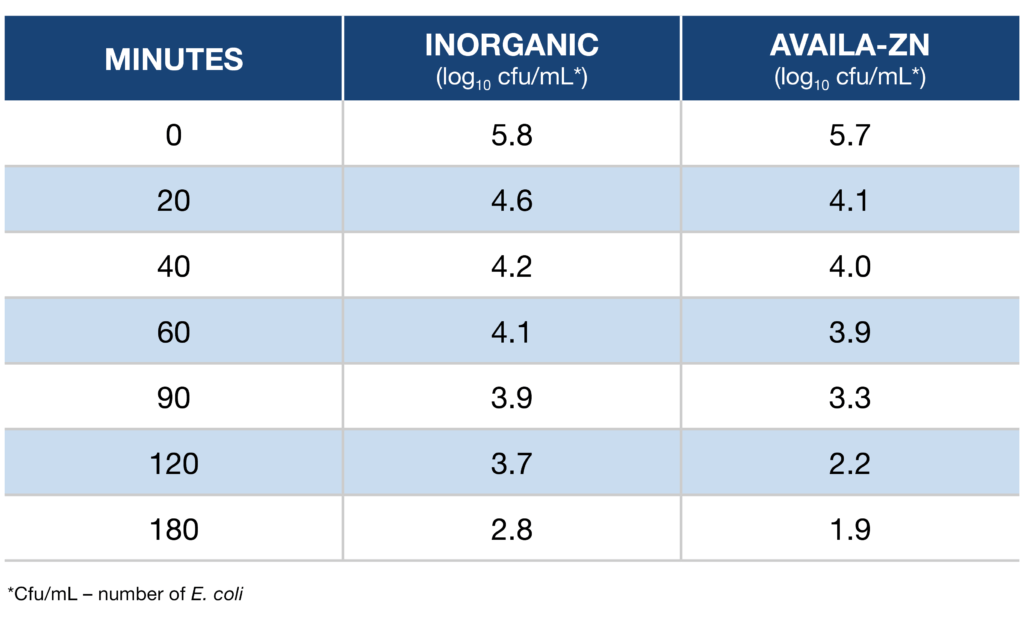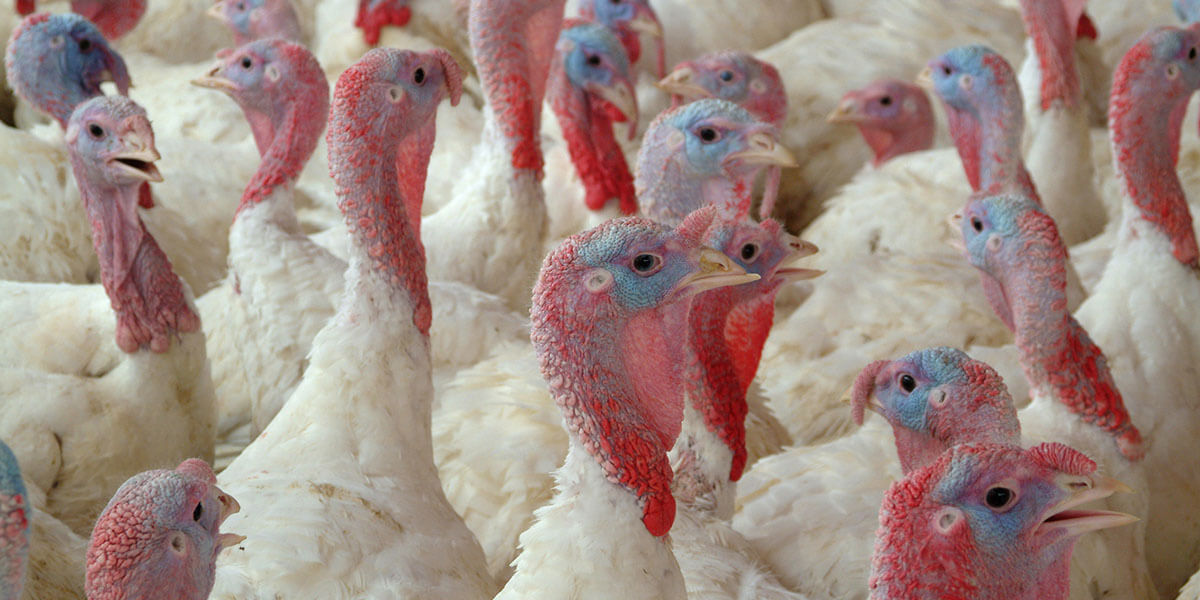The presence of E. coli in poultry flocks is common, and it can cause numerous challenges for birds and poultry operations including decreased animal performance and mortality. E. coli can also present a food safety issue for humans.
Even with the best management, an E. coli outbreak can be quite challenging to control within a flock. Poultry litter and feed are typically the most common carriers of E. coli. All it takes is an opening or scar, such as cracks in the bird’s feet or a disruption in gut health, for an animal to become infected. Once E. coli enters this opening, it is carried throughout the body via the blood. It can even infect other birds in the flock through excrement, bacteria in the building and subpar building ventilation.
How is E. coli in turkey affecting your bottom line?
The bird’s immune system will need to divert energy, protein and nutrients from growth and the production of lean muscle to fighting the E. coli bacteria challenge in its system. Thus, flock performance is impacted in terms of feed conversion and muscle development; and mortality rates will increase if the infection is not addressed in a time-efficient manner.
Boosting a turkey’s ability to respond
One way to help protect your flock is to boost the bird’s ability to respond to inflammatory stimuli. Zinpro Corporation partnered with Colorado Quality Research (CQR) to determine how incorporating the trace mineral zinc into the feed ration can help support the bird’s immune system, so when an infection does occur, the bird has the necessary nutrients it needs to fight off the challenge.
The study was conducted with 21-day old Nicholas female turkeys. The birds were sorted into two groups:
- Inorganic Treatment: Fed a ration containing 100 ppm of zinc sulfate from 0 to 21 days of age
- Availa® Zn Treatment: Fed a ration containing 100 ppm of zinc sulfate with an additional 40 ppm of zinc from Availa-Zn from 0 to 21 days of age
At 21 days of age the birds in each group received an inoculation into the ulnar vein of one wing containing 1.0×106 cells of pathogenic field E. coli. Following the inoculation, equal amounts of blood were drawn from the brachial vein of the opposite wing of each bird at timed intervals to measure the circulation of the E. coli and the formation of E. coli colonies in the blood.
What the study found is that feeding zinc from Availa®Zn prior to the E. coli infection significantly decreased the amount of circulatory E. coli in the blood of the animals. Therefore, the enhanced digestibility and absorbability of Availa-Zn is helping to supply nutrients to the antibodies to fight against the E. coli.

The research study also showed that birds fed zinc from Availa-Zn had a higher body weight, 0.481 kg compared to 0.463 kg than the birds fed the inorganic treatment, and a better adjusted feed conversion rate of 1.608 compared to 1.643 in the 21 days of the study.
Why are trace minerals important for preventing E. coli?
Birds cannot store much of the necessary minerals needed for normal function in their bodies. They can store trace minerals within the bone, but the trace minerals cannot be readily retrieved from the bone when needed in the case of a bacterial infection. By supplementing the bird’s daily diet with trace minerals that are readily absorbable, the birds will have zinc available to support a stronger immune response to fight against bacterial infections, while not diverting nutrients from the production of lean muscle. This helps the birds maintain their performance during an immune challenge.
To learn more about Availa-Zn and its role in building a stronger immune response to bacterial challenges, please contact your Zinpro representative.

